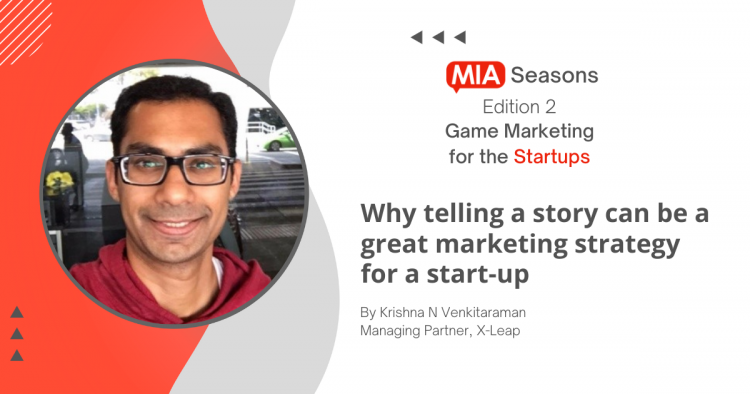Stories happen to those who tell them.
Traditional marketing attempts to reinforce the purchase decision with a messaging strategy of ‘want it, buy it, trust us’. Established companies and brands have a market-product fit. The crux of such a company is a proven offering—with people, processes, and systems designed to keep churning out more and more of it. Every concept designed, influencer recruited, content curated is just a re-invention of ideas, people, words, to repeat the same message: want it, buy it, trust us. There is no mystery or allure. A message is a fact, or an instruction—‘buy it’.
The term ‘start-up’ refers to ‘an act or process of setting something in motion’. The term has been co-opted to refer to a small team of entrepreneurs who want to build something for which they believe there is—or will be—a demand.
Every start-up is the story of a dreamer—a fool who started dancing to a music that others couldn’t hear yet. Many stop because the loud din of the jeers and the defining silence of disbelief drown out their music. But a few dance long enough until the others hear the music too. For these dreamers, the music they initially started dancing to, is often far away from the one still playing when others begin to hear it. This is what business parlance refers to as ‘pivots’.
Most successful (read surviving) start-ups undergo multiple pivots along their journey. This means that the offerings, customers, and even people change multiple times along the way. It is hard to resort to the traditional messaging of ‘want it, buy it, trust us’, when the ‘it’ itself changes multiple times. In this case, it is better for the start-up to use a story rather than a message for its marketing strategy.
A story is an account of ‘events’ and ‘people’. It unfolds around a purpose rather than an offering. It changes, grows, and evolves along with the start-up. It remains true to the promise of motion—like the start-up. A story attempts to capture the feeling of the entrepreneur who listens to the music, rather than try to describe the music itself. This allows the audience to interpret, and experience their own version of the music. That is the true essence of storytelling. A message tells a fact or instructs. A story offers a feeling, an experience.
In today’s rapidly changing market landscape, all companies must be nimble at marketing, and act as start-ups to stay relevant. Needs, tastes, and behaviours are changing at a pace far outstripping anything before. Hence it is imperative for larger firms too to adapt, and adopt storytelling as a marketing strategy. In this scenario, start-ups have the advantage of starting on page one of their story. They can tell it as they write it. But they must learn to tell it authentically, and to tell it well.
Because: stories happen to those who tell them.
















